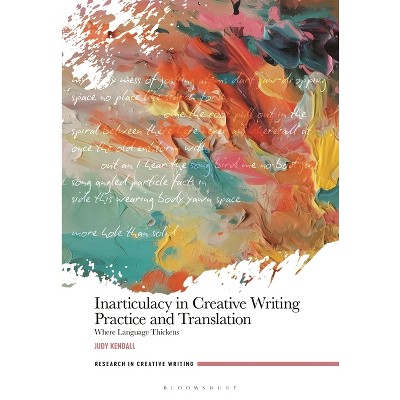Sponsored

Yet Another Costume Party Debacle - by Ingrid A Nelson (Paperback)
$22.50
In Stock
Eligible for registries and wish lists
Sponsored
About this item
Highlights
- How the policies of elite colleges allow racially themed parties to continue by perpetuating the status quo.
- About the Author: Ingrid A. Nelson is professor of sociology at Bowdoin College.
- 240 Pages
- Education, Higher
Description
About the Book
"College parties far too often host racially themed parties, inviting students to dress us as stereotypes of racial groups: Indigenous people and white settlers for Columbus Day, for example, or in Black urban streetwear as "gangsters." These events occasionally lead to shocked stories in the national news, but despite all of the embarrassment, these parties persist. This new project from sociologist of education Ingrid A. Nelson explores: how do these parties come to be, and how do institutions respond? And what, if anything, do undergraduates learn about race and racism from these encounters? Yet Another Costume Party Debacle delves into three racist campus parties at Bowdoin College, a top-ranking liberal arts college in Maine. Nelson uncovers the important ways a university's history, policies, and structures persist in allowing racist parties to take place. By Nelson's account, three major factors shape a culture that allows these parties to continue: organizational structures, such as housing, that leave students siloed and segregated, the scripts students make use of to talk about race, and student behaviors. When conversations about race do arise, students wind up talking to people who already agree with them or share their worldview. The scripts for talking about race, too, lead students to prioritize maintaining their reputations over disrupting the status quo, striving above all "not to hurt anyone's feelings." While some might see this as an admirable aim, Nelson instead shows us that it's a missed opportunity for real change. The institutions, scripts, and behaviors that shape responses to racist parties show clearly why racially charged incidents persist on college campuses. To end them, we must take the charge of diversity seriously by changing the structures that bring students together and drive them apart"--Book Synopsis
How the policies of elite colleges allow racially themed parties to continue by perpetuating the status quo. On a cold February evening, a group of students at Bowdoin College, an elite and historically white liberal arts college in Maine, gathered to drink tequila at a party referred to as "not not a fiesta." By noon the next day, Instagram videos of students sporting miniature sombreros had spread like wildfire through campus. Over the next few weeks, national media outlets would broadcast the embarrassing fallout. But the frequency with which similar parties recur on campuses across the United States begs the question: what, if anything, do undergraduates learn about race and racism from these encounters? Drawing on interviews and archival research, Yet Another Costume Party Debacle shows us how colleges both contest and reproduce racialized systems of power. Sociologist Ingrid A. Nelson juxtaposes how students and administrators discuss race with how they behave in the aftermath of racially charged campus controversies. Nelson spoke in-depth with students and other key players in several controversial parties--"Cracksgiving," a "gangster party," and the "not not a fiesta" tequila party--at Bowdoin. The college's administrative response failed to encourage productive dialogue or address larger questions about race on campus. Nelson shows how the underlying campus structures at elite liberal arts colleges foster an environment that is ripe for racially charged incidents; we shouldn't be surprised when we read about yet another costume party debacle. Nelson advises how we can take charge of diversity on our campuses by changing the systems that bring students together and drive them apart.Review Quotes
"Yet Another Costume Party Debacle enters the conversation about race and elite, predominantly white educational institutions from a unique angle: considering how students understand and respond to racialized costume parties and ensuing scandals, and what they learn from the way institutional leaders and peers respond."--Sherry Deckman, author of Black Space: Negotiating Race, Diversity, and Belonging in the Ivory Tower
"All too often the coverage of these incidents tends to be relatively surface level, and when it does have analytical depth, it does not tend to explore the root causes of these events. By rooting the work in sociologically oriented race studies and organizational theory, this book offers exciting new terrain for research and practice. This is a very compelling work, and I hope its impacts will be far-reaching."--Nolan Cabrera, author of White Guys on Campus: Racism, White Immunity, and the Myth of "Post-Racial" Higher Education
About the Author
Ingrid A. Nelson is professor of sociology at Bowdoin College. She is the author of Why Afterschool Matters, published by Rutgers University Press.Dimensions (Overall): 9.0 Inches (H) x 6.18 Inches (W) x .54 Inches (D)
Weight: .74 Pounds
Suggested Age: 22 Years and Up
Number of Pages: 240
Genre: Education
Sub-Genre: Higher
Publisher: University of Chicago Press
Format: Paperback
Author: Ingrid A Nelson
Language: English
Street Date: December 11, 2024
TCIN: 1006101459
UPC: 9780226836850
Item Number (DPCI): 247-50-2205
Origin: Made in the USA or Imported
If the item details aren’t accurate or complete, we want to know about it.
Shipping details
Estimated ship dimensions: 0.54 inches length x 6.18 inches width x 9 inches height
Estimated ship weight: 0.74 pounds
We regret that this item cannot be shipped to PO Boxes.
This item cannot be shipped to the following locations: American Samoa (see also separate entry under AS), Guam (see also separate entry under GU), Northern Mariana Islands, Puerto Rico (see also separate entry under PR), United States Minor Outlying Islands, Virgin Islands, U.S., APO/FPO
Return details
This item can be returned to any Target store or Target.com.
This item must be returned within 90 days of the date it was purchased in store, shipped, delivered by a Shipt shopper, or made ready for pickup.
See the return policy for complete information.
Trending Non-Fiction

$15.68
Save $5 when you spend $25 on select books
4.6 out of 5 stars with 245 ratings


Highly rated
$18.28
was $19.58 New lower price
Save $5 when you spend $25 on select books
4.8 out of 5 stars with 23 ratings














